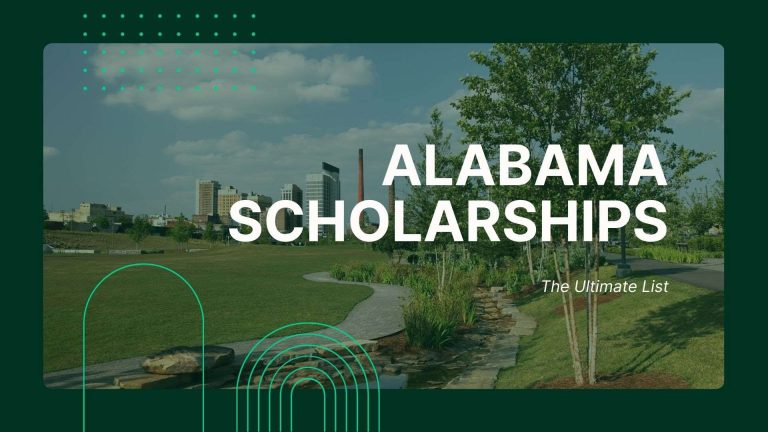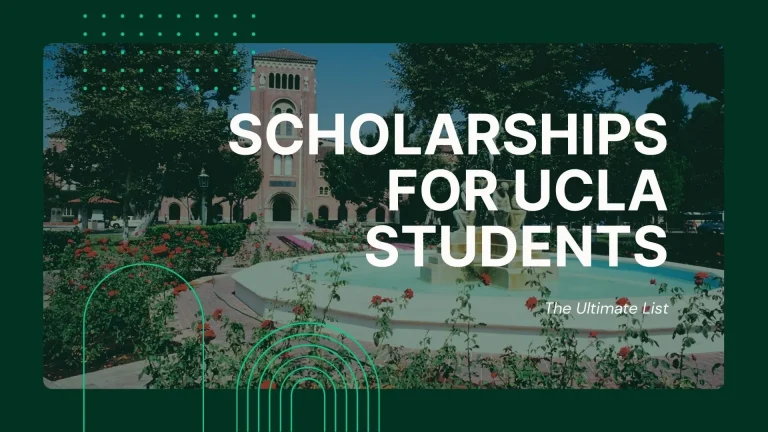Learning disabilities often result in unique hurdles, from difficulties with reading and writing to challenges in processing information. These obstacles can make academic success seem daunting.
For dyslexic individuals, navigating higher education can be particularly difficult, as traditional teaching methods may not always align with their learning styles. However, support systems and resources are available to help them succeed.
To find the best dyslexic scholarships, I went through a structured research process. This included identifying scholarship categories specifically for learning disabilities and utilizing various scholarship databases. By employing targeted searches with keywords like “dyslexia scholarships,” I was able to filter results effectively. I focused on reading the eligibility requirements, organizing application materials, and applying early. Throughout my research, I found Bold.org to be the most comprehensive and user-friendly platform, offering a wide range of scholarships tailored for dyslexic students.
Scholarships specifically designed for dyslexic students offer more than just financial assistance; they recognize and celebrate the resilience and determination of these individuals. Pursuing available scholarship opportunities tailored towards supporting neurodiverse learners is essential for breaking down barriers. They not only provide financial aid but also foster a sense of belonging and recognition.
Key takeaway: Scholarships play a crucial role in supporting dyslexic students on their educational journey, empowering them to overcome barriers and achieve their academic goals.

Understanding Dyslexia and Learning Disabilities
Dyslexia is more than just mixing up letters; it’s a specific learning disability that affects reading, writing, and spelling. Often hereditary, dyslexia impacts about 10% of the population, making it one of the most common learning disabilities among students.
Other Learning Disabilities That May Accompany Dyslexia
Dyslexia rarely occurs in isolation. Many students with dyslexia also face challenges such as:
- Dysgraphia: Difficulty with writing and fine motor skills.
- Dyscalculia: Struggles with math and number-related tasks.
- Auditory Processing Disorder (APD): Challenges in processing auditory information.
Educational Challenges Faced by Dyslexic Students
Students with dyslexia often encounter:
- Reading Difficulties: Slow reading speed and trouble decoding words.
- Writing Issues: Problems with spelling, grammar, and organizing thoughts on paper.
- Memory Retention: Difficulty remembering sequences, instructions, or new vocabulary.
Addressing these challenges requires targeted support:
- Individualized Education Plans (IEPs): Customized strategies tailored to each student’s needs.
- Assistive Technology: Tools like text-to-speech software or audiobooks.
- Specialized Instruction: Teaching methods like Orton-Gillingham that focus on multisensory learning.
Creating an inclusive educational environment helps dyslexic students thrive academically and personally. Scholarships can ease the financial burden, allowing these students to access necessary resources and support systems.
The Best Scholarships for Dyslexic Students
We have compiled 20 of the best scholarships for dyslexic students to apply for that can help them get the education needed to pursue any career of their choice after college or grad school. Here are some notable scholarships to help students thrive:

How to Find Dyslexia Scholarships
Searching for scholarships specifically designed for dyslexic students can feel overwhelming, but there are excellent resources available to guide you.
Resources and Websites
Here are some valuable resources and websites that can help you find scholarships for dyslexic students:
- Learning Disabilities Association of America (LDA): This organization offers a list of scholarships for students with learning disabilities. Their website provides links to various scholarship opportunities.
- National Center for Learning Disabilities (NCLD): NCLD collaborates with numerous universities to promote inclusive education. They offer detailed information on scholarships and grants aimed at supporting students with dyslexia and other learning disabilities.
- Bold.org: Bold.org features a wide array of scholarships specifically designed for dyslexic students and other neurodiverse learners. Their platform allows you to search and apply for scholarships tailored to your needs, making the process more accessible. Discover more at Bold.org.
Collaborations with Universities
Many universities have inclusive programs tailored to support neurodiverse students. They often work closely with organizations like LDA and NCLD to attract applicants from diverse backgrounds, including those diagnosed with Specific Learning Disorders (SLD) such as Dysgraphia and Auditory Processing Disorder.
By leveraging these resources and seeking advice from specialized organizations, you can uncover scholarship opportunities crafted to help you succeed in higher education while embracing your unique learning style.

Tips for Applying for Scholarships
Applying for disability scholarships can feel challenging, but understanding the application process can make it much smoother. Here’s some advice from experts to help you along the way:
Documentation Needed
Gathering relevant documentation is necessary. You’ll often need:
- Medical records that clearly state your diagnosis.
- Educational assessments that detail your learning disabilities.
- Letters from healthcare providers or educational professionals that support your application.
Having all these documents ready will streamline your application process and ensure you’re prepared for any specific requirements from scholarship committees.
Crafting a Compelling Personal Statement
Your personal statement is your chance to shine. Focus on:
- Highlighting strengths: Emphasize how your unique experiences have shaped you into a resilient and capable student.
- Addressing obstacles: Share specific challenges you’ve faced due to dyslexia and how you’ve overcome them. This demonstrates perseverance and problem-solving skills.
Think of your personal statement as a storytelling opportunity where you can showcase not just your academic achievements but also your personal growth and determination.
Remember, each part of the application is an opportunity to present yourself as a well-rounded candidate who is more than capable of thriving despite the challenges posed by dyslexia.
Frequently Asked Questions About Dyslexia Scholarships
What Is the Anne Ford Scholarship?
The Anne Ford Scholarship is a prestigious award aimed at supporting students with learning disabilities who are pursuing higher education. Designed for graduating high school seniors with a documented learning disability (or many), this scholarship provides financial assistance to help cover tuition, fees, and other educational expenses as recipients enroll in full-time undergraduate programs at accredited colleges or universities.
For more information about the application process, including details on eligible students, you can visit the official website of the National Center for Learning Disabilities (NCLD).
Are There Other Learning Disability Scholarships?
Yes, there are several other scholarships available for students with learning disabilities beyond those specifically for dyslexic individuals. If you’re pursuing a college education and have one or many learning disabilities, scholarships aimed at supporting college students like you can provide essential financial assistance to help cover your college costs.
Are There Dyslexic College Scholarships for Graduate Students?
There are many scholarship opportunities available at graduate school. While not many dyslexic scholarships are aimed at graduate students, there are other graduate scholarship opportunities you can apply for. Browse great graduate scholarships on Bold.org.
How Many Scholarships Are Available for High School Students?
Most scholarships have the eligibility criteria of “graduating high school senior,” so you’ll find that there is a multitude of scholarships for high school students. If you’re a high school student but not yet a senior, don’t worry. There are scholarships for students at all education levels, including high school freshmen.
If you’re an undergrad or graduate student with dyslexia, take the time to apply for scholarships with you in mind. You’ll improve your chances of winning.

Lucy Maddox
Lucy’s international upbringing in Hong Kong and love for literature have shaped her multifaceted background. She attended university in Middlebury, Vermont, before settling in Arlington, Virginia. In her free time, Lucy enjoys True Crime podcasts, thrillers, literary fiction, running, hiking, exploring Washington, D.C.'s newest restaurants, and blogging about her latest travels.






